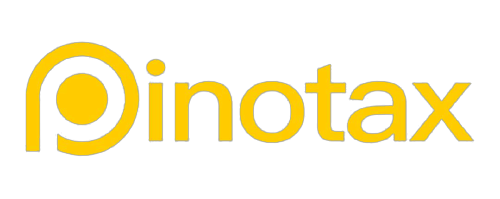FAQ
General Question
Starting a business is difficult, but if management concentrates on the main undertaking and outsources bookkeeping to a company with Certified Public Accountants (CPA) who are familiar with current accounting procedures in the Philippines, success may be more easily attained.
It might be more cost- and time-effective to outsource bookkeeping to a company that offers expert services.
If handled by a CPA, basic bookkeeping would need at least 3–5 hours per day. It’s possible that this time might be better spent overseeing business operations.
Hiring an in-house CPA to handle accounting, tax compliance, and payroll duties may be more expensive than paying a business to handle the same duties on a professional basis. In addition, the business would have a legal obligation to maintain services despite any adjustments to its workforce.
Every taxpayer is required by the Bureau of Internal Revenue (BIR) to maintain a set of six books of accounts at their primary place of business.
- Journal – before transactions are entered in the general ledger, accounting entries are made in the journal. It includes the following details:Purchase Order No., etc.
- Posting date
- Description of the transaction
- Accounts to debit and credit and the corresponding amounts.
- Reference number which may be check numbers, Sales Invoice No., Purchase Order No., etc.
2. General Ledger – Based on the journal entries in the Journal, it lists each account’s movement (Debit and Credit) over a specific period.
3. Cash receipt book – It serves as a record of all cash receipts, including cash sales, accounts receivable collections, and other activities involving cash intake. Each entry may contain the information below:
- Accounts to debit or credit and the corresponding amounts
- Date of record
- Date of receipt
- Cheque number (for cheque collections)
- Sales Invoice/Official Receipt number
- Short description
4. Cash disbursements book – It serves as a record of all cash disbursements, including payments for payables and disbursements for cash purchases. Each entry may contain the information below:
- Accounts to debit or credit and the corresponding amounts
- Date of record
- Date of payment
- Cheque number (for cheque payments)
- Sales Invoice/Official Receipt Number
- Short description
5. Subsidiary Sales Journal – It includes all sales on credit and cash. Each entry could have the following information:
- Accounts to debit or credit and the corresponding amounts
- Date of record
- Sales Invoice/Official Receipt Number
- Sales terms
- Customer name
- Short description
6. Subsidiary Purchases Journal – It includes all purchases of products and services made with cash or credit. Each entry may contain the information below:
- Accounts to debit or credit and the corresponding amounts
- Date of record
- Sales Invoice/Official Receipt Number
- Purchase terms
- Vendor name
- Short description
Only after obtaining the required permits and licenses from the local government unit, the Bureau of Internal Revenue (BIR), the Securities and Exchange Commission (SEC) for corporations and partnerships or the Department of Trade and Industry (DTI) for sole proprietorships, should the business begin operations.
Even if there are no transactions to report, the taxpayer must begin filing tax returns as soon as the BIR issues the Certificate of Registration.
The taxpayer is required to submit tax returns on a regular basis for the various tax types listed on its BIR Certificate of Registration.
In general, There are three primary taxes that taxpayers must pay:
- Withholding Taxes – filed monthly and annually
- Value Added Tax – filed monthly and quarterly
- Income Tax – filed quarterly and annually
According to the terms of its BIR Certificate of Registration, the taxpayer might be compelled to submit supplementary tax returns.
As soon as the BIR Certificate of Registration is issued, the taxpayer must begin filing tax returns. The absence of any transactions throughout the period may be reflected in its returns.
For the most part, foreign enterprises are not subject to any additional tax compliance obligations. For taxes that are specific to foreign entities, such as the branch profit remittance tax for profits transferred from a Philippine branch to the head office, additional tax filings could be necessary.
The Philippine Financial Reporting Standards (PFRS) must be followed when creating financial statements for registered businesses, according to the SEC. Additionally, corporate entities must submit financial statements that have been properly audited and certified by an independent public accountant (external auditor) and stamped “received” by the BIR within 120 days of the end of their fiscal or calendar year, whichever is lower. This requirement applies to corporate entities with authorized capital stock or paid-up capital of at least P 50,000 or quarterly gross sales of more than P 150,000. Unless the entity followed PFRS while recording its transactions, no external auditor would offer an unqualified opinion. Annual income tax returns must also include audited financial statements, according to the BIR.
Failure to timely submit financial statements and tax returns may result in fines from the SEC and BIR.
